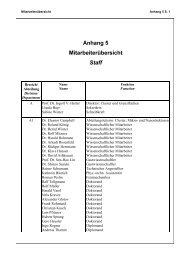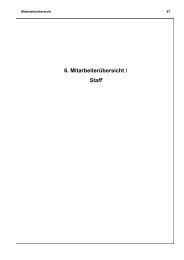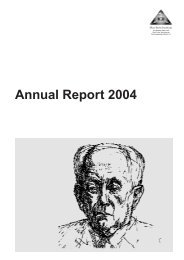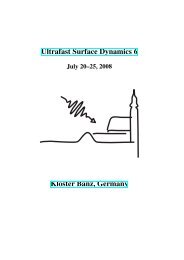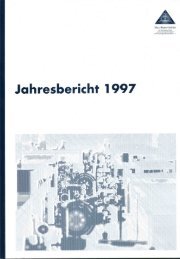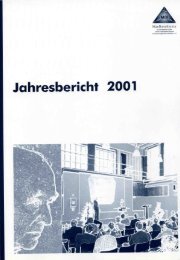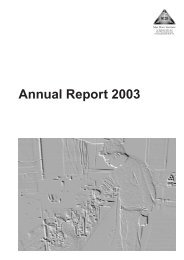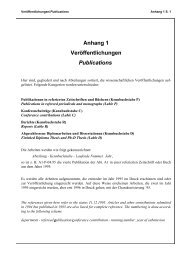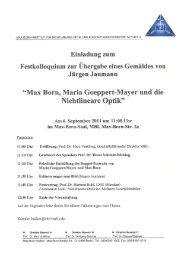Create successful ePaper yourself
Turn your PDF publications into a flip-book with our unique Google optimized e-Paper software.
Fig. 49<br />
The same quotation in German<br />
and in English.<br />
Fig. 50<br />
Martin Luther; painting by<br />
Lucas Cranach the Elder from<br />
1535.<br />
26<br />
<strong>Max</strong> <strong>Born</strong> • Gustav <strong>Born</strong><br />
put by him as follows [48, 49]: “I believe that ideas such as absolute certitude, absolute exactness,<br />
final truth, etc. are figments of the imagination which should not be admissible in any<br />
field of science. On the other hand, any assertion of probability is either right or wrong from<br />
the standpoint of the theory on which it is based. This loosening of thinking (Lockerung des<br />
Denkens) seems to me to be the greatest blessing which modern science has given to us. For<br />
the belief in a single truth and in being the possessor thereof is the root cause of all evil in the<br />
world” (<strong>Born</strong>, 1978). This seems to me so true and important that the handwritten quotation<br />
stands framed on my desk. The idea of a loosening of thinking given to us by science provides<br />
a solid basis for rejecting dogmas in all their many different guises, which are without question<br />
the greatest danger to the future of human and indeed of all life on earth.<br />
All dogmas are essentially alike, whether in religion, politics, economics or any other field. The<br />
sameness resides in a tightening of thinking which does not permit the search for objective evidence<br />
and clings to ideas which are unprovable in any rational sense. Indeed, it seems to be<br />
their unprovability which makes dogmas appealing: no mental work is required, only belief.<br />
Believers defend their different faiths ferociously; in Britain Defender of the Faith is still inscribed<br />
on every coin but has happily become obsolete in our long-tolerant country. The most<br />
tenacious dogmas such as the doctrines of the great religions originated long before the seventeenth<br />
century when rationality and science began to become real influences in the historical<br />
process. Since then, dogmas have originated through ignorance or through perversions of<br />
hard-won factual knowledge. Take medicine: when at the end of the eighteenth century Samuel<br />
Hahnemann first dreamt up homeopathy, its nonsensical doctrines could be excused by ignorance<br />
of the law of mass action and of biological mechanisms at that time. Advocating homeopathy<br />
nowadays is disreputable and inexcusable. Or take capitalist economics with its dogma<br />
of unlimited growth: as William Keegan said in The Observer (21th November 2004): “there is<br />
something wrong with a world where all the leading economies are trying to achieve exportled<br />
growth. They cannot all succeed unless they start trading with Mars.” In politics there are,



